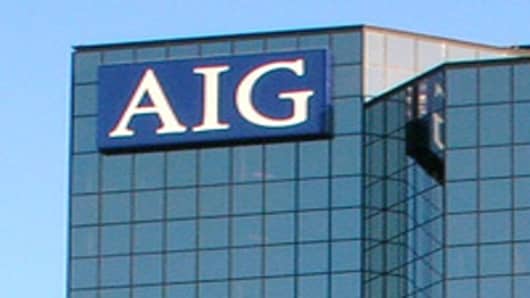“Who would want to buy a stock that’s still 80 percent owned by the government?” wondered William T. Fitzpatrick, an equity analyst at Optique Capital. Shares ended Thursday at $47.84, a gain of 27 percent from the previous close of $37.69.
Yes, the company has named a new chief executive, who comes from a solid background at MetLife, and yes, he has said that A.I.G. will pay back the government for its bailout sooner rather than later. The giant insurer has been moving to change the names of key business units and working to disentangle its bewildering structure. It even reported a profit in its latest quarter.
But none of that really explains the recent gains. Speculation swirls daily that some deal may be in the works, that short sellers are being squeezed out of their positions, or that the company’s former chief executive, Maurice R. Greenberg, may be poised to make a comeback in the role of consultant. The new chief executive, Robert Benmosche, has been fueling some of the interest, as he talks about seeking advice from Mr. Greenberg and slowing the breakup of A.I.G. so it is not a fire sale.
Mr. Fitzpatrick said he thought the likelier explanation for the increased share price was that speculators looking to profit from a distressed stock had pounced on A.I.G.
“The risk appetite has returned to the marketplace,” he said. “People don’t want to get 5 percent back. They want to get the money back that they lost over the last year.” They look at a cratered stock like A.I.G. and think, “This is the place to do it,” he said.
Taxpayers may take some comfort from the rise in A.I.G.’s stock, which means better returns on their involuntary investment. Even though the government owns most of A.I.G., however, the soaring value of its shares does not come close to matching the vast amount of credit it extended through the Federal Reserve and the Treasury. Roughly $180 billion was marshaled to keep A.I.G. afloat last fall and winter. The entire market value of A.I.G.’s stock is just $6.4 billion, even at the current price.
Also, the stock is concentrated in a few hands, meaning that a small number of investors can cause a big move in the stock price. The number of shares was reduced by a 20-for-1 reverse split in June. The government has the biggest stake in A.I.G., and the biggest common shareholder is Mr. Greenberg and a group of entities he controls.
Mr. Benmosche’s total pay, about $10 million a year with bonus, includes a substantial portion in A.I.G. stock, which has gained 53 percent since his selection. His contract granted him $4 million in restricted shares, which cannot be sold for five years, as of Aug. 10.
Even though A.I.G. is back in the black, there are still signs of trouble under the surface. Its insurance companies hold big blocks of complex asset-backed securities, and the company’s departing chief executive, Edward M. Liddy, said that an accounting break helped produce its recent modest profit.
Mr. Liddy has also warned investors to “expect continued volatility” in the coming months, saying that even good news could be bad for the bottom line: if A.I.G. succeeded in repaying its debt to the Federal Reserve soon, he said, the accounting treatment could produce a $5 billion pretax hit to earnings.
Nor is it clear that A.I.G. will succeed in raising enough money to pay back the Fed. MetLife has been looking carefully at A.I.G.’s big international life insurance business for several months, but has not yet made an acceptable offer. Hopes that Mr. Benmosche would be able to jawbone his old company into raising its price were dampened earlier this month, when A.I.G. said in a regulatory filing that it had taken steps “to ensure that Mr. Benmosche is not inappropriately involved in any transaction between A.I.G. and MetLife.”
The new chief executive may have given the stock a lift on Wednesday, when he gave an interview to Reuters on the terrace of his vacation home on the Adriatic. He said he had turned to Mr. Greenberg for support and advice on a regular basis and continued to do so.
“The world may choose to vilify him,” Mr. Benmosche was quoted as saying of Mr. Greenberg, who was forced out in an accounting scandal in 2005. “I think of him as having had some problems, but he can help us with the solutions.”
Mr. Greenberg ran A.I.G. for more than three decades, presiding over a period of giant gains for shareholders. Some see him as a hero; some see him as a scoundrel who tricked regulators, stalled claimants and set the stage for the company’s near collapse. Mr. Greenberg has denied that, saying he was incapable of sinking the company three years after he left it. He has sparred with A.I.G. since his ouster, and has criticized of Mr. Liddy, saying his efforts to dismantle the company quickly to pay back the Fed were misguided.


